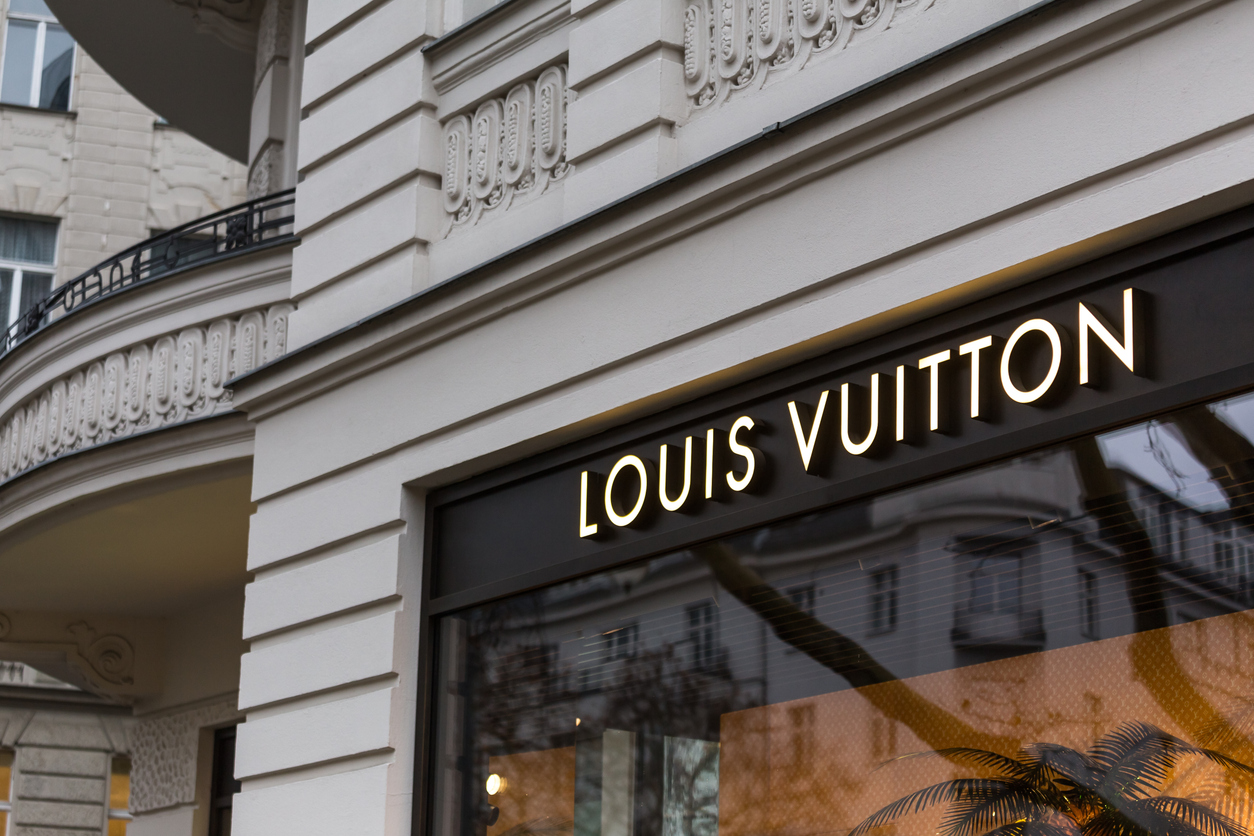LVMH Reshuffle: Jean-Jacques Guiony and Alexandre Arnault Step into New Roles as Moët Hennessy Faces Challenges
LVMH, the world’s leading luxury goods conglomerate, is continuing its management reshuffle with strategic moves aimed at strengthening key divisions during turbulent times. Jean-Jacques Guiony, the long-serving CFO of LVMH, has been appointed CEO of Moët Hennessy, the group’s prestigious wines and spirits division. This appointment marks a significant change, as Guiony takes the reins from Philippe Schaus, who will step down after overseeing the division’s leadership for several years.
Joining Guiony in this critical leadership overhaul is Alexandre Arnault, the 32-year-old son of LVMH’s founder Bernard Arnault. Alexandre, who currently serves as the executive vice president of product, communications, and industrial affairs at Tiffany & Co., will become the deputy CEO of Moët Hennessy. His new role is part of a broader strategy to fortify LVMH's position in the luxury alcohol sector, particularly as the division faces a variety of challenges that could impact future growth.
The reshuffle, which will take effect on February 1, 2024, signals the group’s proactive approach in managing evolving market dynamics and responding to recent downturns in Moët Hennessy’s performance. LVMH’s wines and spirits division includes iconic brands such as Moët & Chandon, Veuve Clicquot, Ruinart, and Hennessy, all of which have been affected by changes in consumer behavior and shifting market conditions.
Challenges Ahead for Moët Hennessy
Jean-Jacques Guiony and Alexandre Arnault’s appointments come at a critical juncture for Moët Hennessy. LVMH’s wine and spirits revenue has seen a notable decline in 2024, with sales falling 8% in the first nine months, dropping to €4.2 billion. The third-quarter performance was particularly concerning, as it recorded a 7% decline, a sharper drop than the overall group’s performance, which was down by 3%.
The slowdown has been attributed to several factors, including the normalization of demand following the post-Covid boom, particularly for champagne, and weak local demand in the crucial Chinese market for cognac. These trends have been further compounded by external risks, such as the possibility of tariffs on luxury alcohol exports to the United States. LVMH had previously warned about the potential impact of such tariffs, especially under the administration of former President Donald Trump, who had imposed similar levies during his time in office.
In addition to these macroeconomic challenges, there is a deeper, more underlying trend affecting the wine and spirits industry: a generational shift in consumer preferences. Younger consumers, particularly Millennials and Gen Z, are drinking less alcohol compared to older generations. This has prompted LVMH to reconsider its approach to marketing and product development in the Moët Hennessy division, with a focus on innovation and diversification.
Strategic Investment in Innovation and Alternatives
In an effort to adapt to changing tastes, Moët Hennessy is exploring new opportunities, particularly in the non-alcoholic sector. One of the notable investments made by the division was in October 2024, when Moët Hennessy took a minority stake in French Bloom, a premium alcohol-free sparkling wine brand co-founded by Maggie Frerejean-Taittinger, Constance Jablonski, and Rodolphe Frerejean-Taittinger. The move reflects the growing demand for premium non-alcoholic beverages, particularly as health-conscious consumers seek alternatives to traditional alcohol.
This is part of Moët Hennessy’s broader strategy to diversify its portfolio and cater to a wider range of consumer preferences, ensuring that the group remains competitive in an increasingly fragmented market. Non-alcoholic beverages are projected to continue their upward trajectory, with many industry experts predicting that this sector will see strong growth in the coming years, especially in the luxury segment.
Moët Hennessy’s approach to innovation also extends to celebrity collaborations, as the company leverages high-profile partnerships to bolster its product offerings. In a notable move earlier this year, the division collaborated with music icon Beyoncé to launch a new whisky brand, SirDavis. This marks the first spirits brand developed entirely in-house by Moët Hennessy in the United States. The collaboration with Beyoncé signals Moët Hennessy’s intention to tap into new, younger audiences, using celebrity influence to drive brand recognition and consumer engagement.
The company’s investment in Armand de Brignac, Jay-Z’s luxury champagne brand, is another example of Moët Hennessy’s strategy to expand its portfolio through partnerships with high-profile figures. This investment, which involved Moët Hennessy acquiring a 50% stake in the brand in 2021, has allowed the division to further tap into the growing demand for high-end, celebrity-backed luxury alcohol.
A New Era at Moët Hennessy
Jean-Jacques Guiony’s transition to CEO of Moët Hennessy represents a natural progression in his long tenure with LVMH. Guiony, who has served as the group’s CFO for nearly two decades, has been a key figure in the company’s financial strategy, helping guide the conglomerate through periods of growth and uncertainty. His extensive experience within LVMH and his understanding of the group’s complex financial ecosystem make him a well-suited leader for the wine and spirits division as it faces turbulent times.
As CEO of Moët Hennessy, Guiony will be tasked with leading the division through a period of transformation. His appointment will likely bring a new focus on financial stability, operational efficiency, and strategic growth initiatives. While Guiony’s financial background will be invaluable in addressing the division’s challenges, his leadership will also be critical in re-energizing the brands under Moët Hennessy’s umbrella.
Alexandre Arnault’s rise within LVMH has been equally meteoric. Having joined the group in 2016, he quickly made a name for himself as the CEO of luggage brand Rimowa, where he oversaw a successful turnaround. Arnault’s appointment to the executive committee in 2024, alongside his brother Frédéric, signifies an increasing presence of the Arnault family in LVMH’s leadership structure. As deputy CEO of Moët Hennessy, Alexandre will bring his youthful perspective and his experience in overseeing luxury brands to the division, helping to guide the brand portfolio into a new era.
With their complementary skills and expertise, Guiony and Arnault are well-positioned to navigate the challenges facing Moët Hennessy, including a declining market for traditional luxury spirits and the shifting preferences of younger consumers. Together, they will likely focus on increasing the appeal of Moët Hennessy’s brands through innovation, enhanced marketing, and strategic investments in emerging trends.
Related: Burberry Prepares for Potential Takeover by Moncler Amid Strategic Shifts and Market Pressures
Related: Burberry’s New CEO Unveils ‘Urgent’ Turnaround Plan Amid Financial Struggles
Broader Reshuffle Within LVMH
The Moët Hennessy leadership reshuffle is just one part of a larger organizational shift within LVMH. The group also announced changes in its human resources leadership. Maud Alvarez-Pereyre has been appointed executive vice president of human resources at LVMH, following the departure of Chantal Gaemperle, who led the human resources and synergies department for over 17 years. Alvarez-Pereyre’s appointment, effective December 1, 2024, is a key part of LVMH’s efforts to reinforce its global talent strategy and maintain a strong corporate culture as the company continues to expand and diversify.
In addition to Alvarez-Pereyre’s appointment, Guillaume Motte, the president and CEO of Sephora, has been named a member of LVMH’s executive committee. Motte’s appointment highlights the group’s ongoing commitment to innovation and leadership across its diverse portfolio of brands, which spans from fashion and cosmetics to wines and spirits.
LVMH’s latest executive reshuffle, with the appointments of Jean-Jacques Guiony as CEO of Moët Hennessy and Alexandre Arnault as deputy CEO, signals the group’s determination to adapt and thrive amidst a challenging environment. With the wine and spirits division grappling with declining sales and changing consumer preferences, Guiony and Arnault will play pivotal roles in revitalizing Moët Hennessy’s iconic brands.
Their leadership will be crucial as they steer the division through a landscape marked by shifting market dynamics, the rise of non-alcoholic alternatives, and the increasing importance of celebrity partnerships. With LVMH’s continued commitment to innovation, sustainability, and global expansion, the company is positioning itself for long-term success in a rapidly evolving luxury market.
The reshuffle is a clear indication that LVMH is not resting on its laurels but is actively working to strengthen its position in the ever-competitive luxury goods sector. The moves made today, combined with the group's broader strategy, will undoubtedly shape the future of the company and its iconic brands in the years to come.











